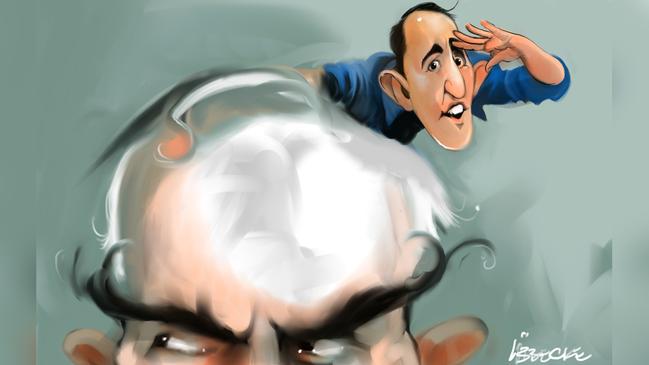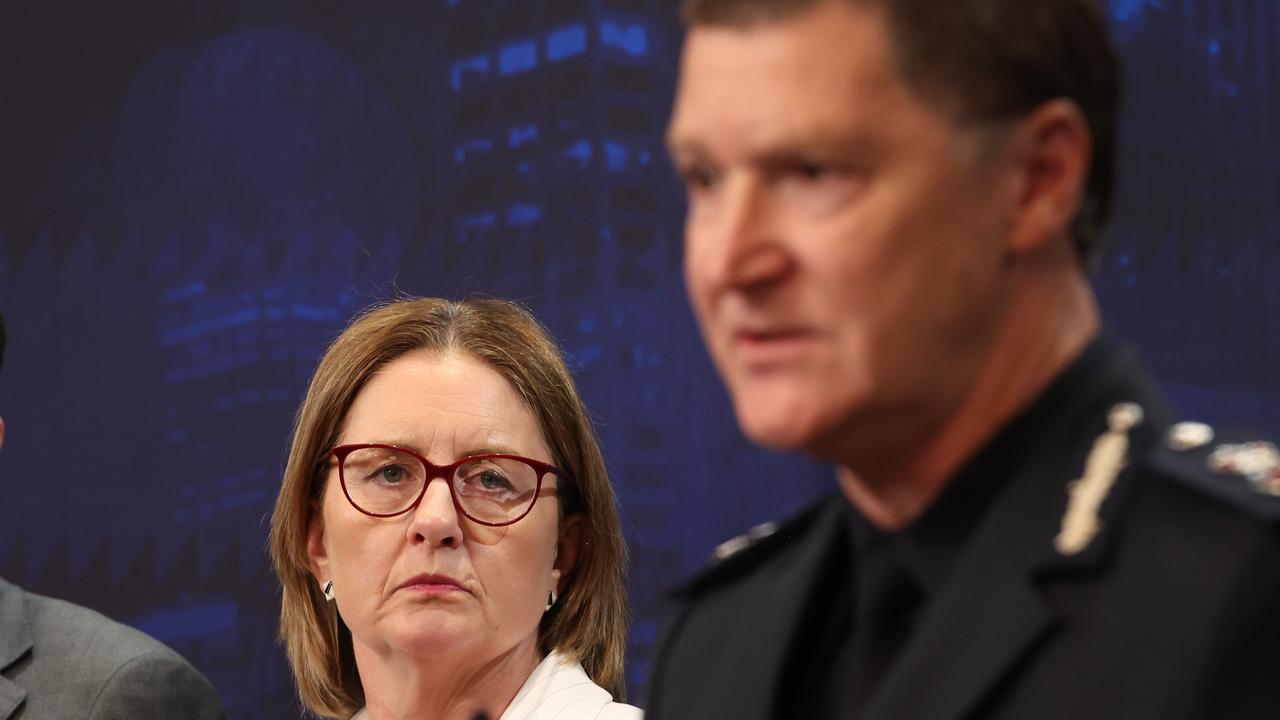
Here’s some free advice. Sack your public relations people right now. Australian politics will suffer if a Liberal does not recognise that enduring values matter more than silly new labels.
You don’t need overpaid PR gurus to work out that the Liberal Party is at its strongest when it identifies its core values, defines its mission in government and hones its retail skills by learning from the best. That’s when the rest — the marketing, the posters and the messaging — falls into place.
The week’s Newspoll numbers speak to Scott Morrison’s success at doing some of that. The Liberal Party has returned to a few core values, and Morrison speaks to voters daily about the social good of a strong economy. At the weekend rally, Morrison’s pitch was simple, direct and laser sharp, targeting the cost of past Labor governments and Bill Shorten’s pie-in-the-sky promises.
“The price of change is big,” Morrison thundered. “Bill Shorten is not telling you the price of changing government … he’s been in the job for 5½ years. If he hasn’t told you by now, I wouldn’t believe him even if he tried.”
Compared with his predecessor at the 2016 election, Morrison is steamrolling over Shorten. Malcolm Turnbull’s peculiarly narcissistic Team Turnbull was a mishmash of policies devoid of a bigger story, apart from him. Back then, voters struggled to differentiate between Labor and Liberal.
Another reason for the Coalition’s competitive placing is Josh Frydenberg’s budget speech that explained core values behind key policies, central among them lower taxes. That liberal equation is simple and politically alluring: people ought to keep more of their own money rather than sending more money to bureaucrats to second-guess the spending preferences of people they don’t know or understand.
Imagine how much stronger the Liberal Party would be right now if its recent leaders had championed more core values. Instead, the Liberal Party has wrestled with its identity for more than a decade since John Howard lost office. That struggle points to a political organisation in need of stronger foundations. While there are some MPs in the party who understand the purpose of a Liberal government, that hasn’t reached to the leadership.
The party’s political fluidity has been dismal. It has gone from Tony Abbott’s desertion of free speech, his deficit levies to new bank taxes that reeked of a punitive class war; Morrison’s policy of forced divestments in the energy sector, the party’s waning support for religious freedom, its deafening silence about broad-based industrial relations reform, caving in over Gonski and continuing a dud NBN. No wonder voters have been confused about the difference between a Liberal and Labor government.
Another low point happened a few years ago. A brilliant young man, decent, down to earth, articulate and passionate about good government was rebuffed by the Liberal Party when he stood for preselection in Victoria, armed with a fine reference from Howard. The man was told he had too many ideas. Party apparatchiks sitting as preselectors were frightened by his ideas.
Was he a communist? A socialist? A bolshie union leader? No, his ideas were classically liberal ones: the freedom that flows from lower taxes and less regulation, the morality of having a job, the liberal values that underpin a liberal democracy.
He also was told that if he were preselected, Labor and the unions would campaign against the Liberal Party.
Rebuffed for having too many ideas? For attracting union ire? I knew then that Liberal Party of Robert Menzies and Howard had no clue any more about its identity, not about its history of success or how to win in the future.
Sharma is a fine candidate for the seat of Wentworth. He has a good chance to win the seat back for the Liberal Party from incumbent Kerryn Phelps.
But his core values should be front and centre, not a fuzzy new label. Asked what it means to be the very model of a modern Aussie Liberal, Sharma told The Australian a few days ago that “it’s about who I am as a person … forward looking, pragmatic and solution-orientated, and someone with fresh ideas, and fresh perspectives, someone who has a young family and a working life”.
Yeah, that’s nice. But what does it mean? It’s the same with Wilson’s posters that advocate “improving lifestyles”.
Pushed about his values, Sharma agreed he is a classical liberal. Now we are getting closer to core values. “I am a John Stuart Mill-type liberal,” he said. “I believe that government should, generally speaking, not be in people’s private lives, unless there’s a compelling public policy reason for it. That government should not be playing a big part in the economy. They should be addressing market failures and providing essential market goods, but we shouldn’t be the central part of the economy.
“I think that’s very much within the classical liberal tradition.”
Those same values made the Liberal Party the country’s most successful postwar political party since 1949, in power for 47 of the past 70 years.
Sharma told me there is a healthy scepticism in Australia about too much ideology. That may be the case. But all the more reason for Liberals to explain that at the heart of differing ideologies are ideas that deliver outcomes.
Some ideologies advocate class warfare, controlled economies and less freedom.
A classically liberal ideology supports thriving private enterprise, people keeping more of their own money, removing the clumsy hand of government, greater individual freedom to think and to challenge stifling orthodoxies, a strong economy to deliver social services. These are morally superior ideas. An ideology is not a bogeyman unless its ideas are frightening.
History shows when a political party is on the nose with voters, nervous politicians search for new labels to entice us to look again. Or no labels in the case of some Liberals in Victoria who are so scared that their posters don’t mention the word Liberal.
This is branding bunkum. Choosing a new label or no label won’t guarantee the same mistakes won’t be made again. If you cannot make the moral case for classical liberal ideas, you won’t convince voters about the purpose of a Liberal government.
janeta@bigpond.net.au




Dave Sharma is running in the blue-ribbon seat of Wentworth in Sydney’s affluent east. Like on a chart used by an optometrist to check your eyesight, the tiniest words on Sharma’s campaign poster say he is a “modern Liberal”. In the Victorian seat of Goldstein, Tim Wilson says he is a modern Liberal, too.